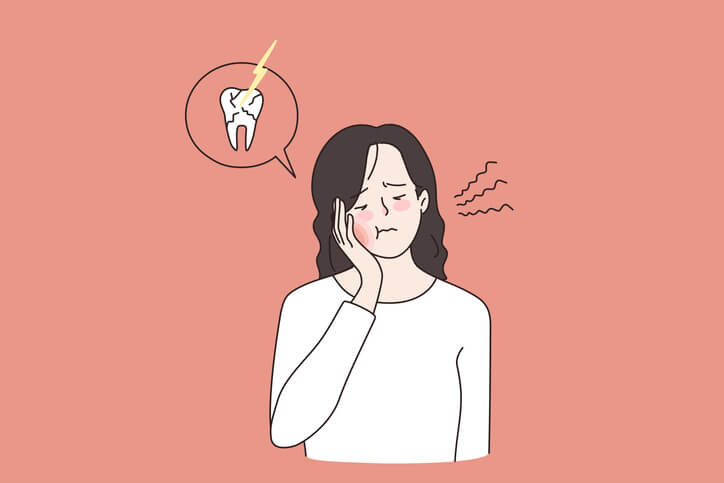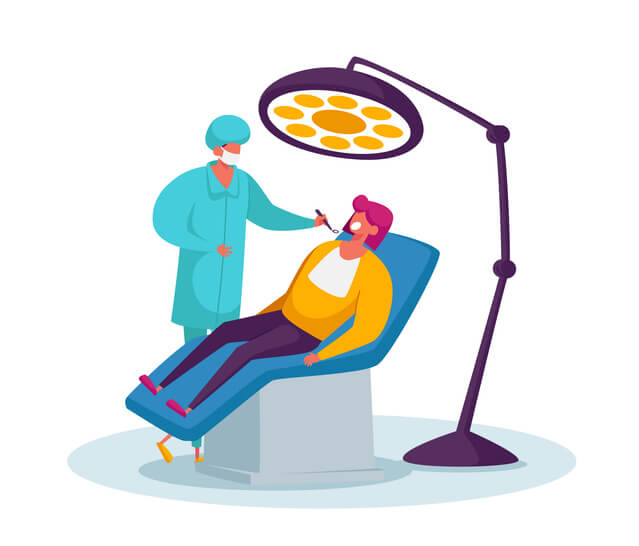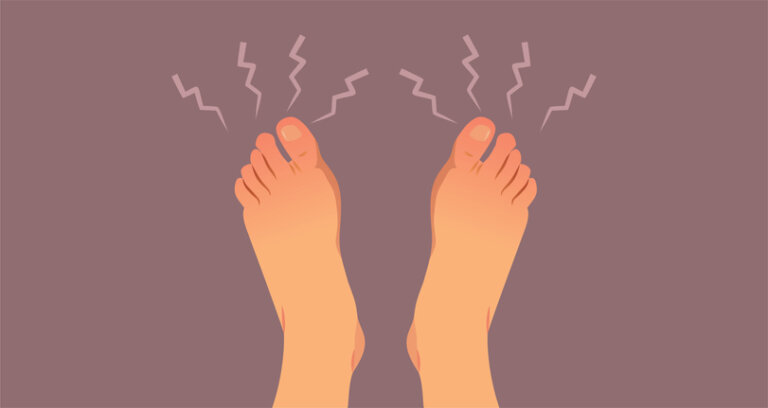Dental Malpractice Nerve Damage
Nerve damage due to dental malpractice can be a distressing and difficult experience. Such injuries can cause significant pain, numbness, and loss of sensory functions, significantly impacting your quality of life. These impacts usually result from negligent dental procedures, often occurring during surgeries like tooth extractions and implant placements. If you’ve had nerve damage from a dental procedure gone wrong, Lance Ehrenberg, Esq. can assist you in exploring your legal options and hopefully alleviate some of your difficulties.

How Does Nerve Damage Happen?
Nerve damage during dental procedures can occur through various incidents. These procedures involve delicate areas where nerves are closely situated near the surgical sites. When a dentist fails to accurately assess the proximity of nerves or apply the correct surgical technique, it may result in accidental nerve trauma. Additionally, excessive force or improper use of dental instruments, including drilling too deep, can lead to crushing, severing, or stretching of nerves, leading to temporary or permanent sensory disruptions. Such outcomes underscore the importance of obtaining skilled surgical dental care to avoid these serious complications.
Dental Procedures That Cause Nerve Damage
Nerve damage in dental settings can arise from several common procedures where the risk of encountering nerves is heightened. These include:
- Tooth Extractions: Removing wisdom teeth is complex due to the roots’ proximity to the mandibular and lingual nerves.
- Dental Implants: Placing implants involves drilling into the jawbone, which can be risky if the drill impacts nerves that are not accurately mapped during planning.
- Root Canal Therapy: This procedure involves deep cleaning of the root canals, which can accidentally extend into the surrounding tissues and potentially affect the nerves.
Each of these procedures requires careful planning and accuracy. For example, imaging studies like X-rays or CBCT scans are often employed to map out the treatment area and avoid nerve pathways. Despite these precautions, errors in technique or judgment can lead to nerve injuries and highlight the need for expertise and careful execution in dental practices.

Common Nerve Injuries
In dental malpractice, common nerve injuries primarily involve the inferior alveolar and the lingual nerves. Damage to these nerves can profoundly impact daily life, from altering facial sensations to affecting the ability to eat and communicate effectively. If you believe you may have such an injury, it is essential to seek help immediately.
Inferior Alveolar Nerve Injuries
Inferior alveolar nerve (IAN) injuries are a significant risk in dental procedures, particularly those involving the lower jaw, such as wisdom tooth extraction and dental implant placement. Damage to the IAN can lead to persistent numbness, electric shock feelings, and a tingling sensation in the chin, lips, and gums, affecting the patient’s ability to speak, eat, and perceive sensations normally. These symptoms can be temporary or permanent, depending on the extent of the nerve damage.
Lingual Nerve Injuries
Lingual nerve injuries occur primarily during dental surgeries, such as wisdom tooth removal or implant installations, where the nerve is at risk due to its proximity to the surgical site. The injury can also occur during crown preparation or wedge procedures involving lower wisdom teeth. Such injuries manifest as numbness, altered taste, pain, or a burning sensation in the tongue and inner aspects of the cheeks. These symptoms can impact a patient’s ability to taste, chew, swallow, and even speak. While some lingual nerve injuries may heal over time, others result in permanent damage, necessitating further medical or legal intervention to address the consequences.
The Impact of Nerve Damage on Your Life
Nerve damage from dental procedures, including persistent pain, numbness, or loss of taste, can profoundly affect your life. These symptoms can disrupt your daily activities, making simple tasks like speaking and eating challenging. The emotional toll is significant as well; living with chronic pain or facial differences can lead to anxiety, depression, and a reduced quality of life. The financial impact can also be substantial, with costs for treatment, potential loss of income, and the need for ongoing care. If you’re experiencing these life-altering effects, you have options for recourse and support.

Can I Sue My Dentist for Nerve Damage?
Yes, you can sue your dentist for nerve damage resulting from negligence or malpractice during dental procedures, and Lance Ehrenberg, Esq. can help you. To establish a case, you must demonstrate that the dentist failed to meet the standard of care expected in the profession, directly causing the nerve damage. It is crucial to gather detailed medical records, expert testimonies, and any other evidence supporting your negligence claim. Additionally, the lawsuit must be filed within the statute of limitations, which is generally 2 ½ years from the date of the negligent act in the case of dental malpractice in the state of New York.
How Long Will My Case Take in Court?
The duration of a dental malpractice case in court can vary significantly, typically ranging from several months to a few years. The timeline depends on several factors, including the complexity of the case, the amount of evidence, and the availability of expert witnesses. Preliminary phases such as discovery, where evidence is exchanged, and pre-trial negotiations may extend the time frame. If the case goes to trial rather than settling out of court, it can lengthen the process. An experienced dental malpractice attorney can offer a more precise estimate based on the specifics of your case and work to streamline the process as much as possible.
When to Contact an Attorney
Contacting an attorney when you suspect nerve damage following a dental procedure is crucial. Early legal consultation allows the attorney to gather evidence, advise on necessary medical evaluations, and ensure you do not miss critical deadlines. Lance Ehrenberg, Esq. can assess the merits of your case, guide you through the legal process, and help safeguard your rights and interests. Consulting with an attorney early also helps prevent any inadvertent statements or agreements with insurance companies or healthcare providers that might undermine your claim.
Podiatric Malpractice Nerve Damage
Experiencing nerve damage due to podiatric malpractice can be a traumatic and painful experience. Unfortunately, common procedures like bunionectomies, hammertoe corrections, or ankle surgeries can go wrong and lead to significant complications that can seriously affect your quality of life. If you’ve suffered from suspected negligence in your podiatric care, Lawrence Karam, Esq. can support you. He can help you explore legal options for compensation and hold those responsible accountable.

What Are the Symptoms of Nerve Damage?
Symptoms of podiatric nerve damage can range from persistent numbness to muscle weakness to sharp or burning pain in the feet and ankles. These symptoms can significantly affect mobility and quality of life, often indicating underlying issues requiring professional attention. The severity and nature of the symptoms largely depend on the type of nerve affected and the extent of the damage. Common symptoms include:
Numbness
Numbness is a symptom of podiatric nerve damage and often manifests as a loss of sensation in the feet or toes. This can make it difficult for individuals to feel temperature changes or pain, which increases the risk of injury or infection. Such numbness might result from compressed nerves due to injuries, surgeries, or conditions like diabetes that affect nerve health. This loss of sensation can impair balance and coordination and pose challenges in everyday activities like walking, driving, or engaging in physical activities. Given the severity of these symptoms, it’s important to seek medical evaluation when numbness occurs. But remember that some numbness over a healed incision line is not unusual and is not the kind of nerve damage for which you can sue.
Weakness
Weakness resulting from podiatric nerve damage can significantly impact an individual’s ability to perform daily activities. This symptom typically manifests as a diminished capacity to move or fully control the foot and ankle, often leading to difficulty walking, climbing stairs, or standing for extended periods. The weakness may be caused by nerve compression or damage within the lower extremity. Prompt diagnosis and treatment are crucial to managing this condition, as it not only affects mobility but also increases the risk of falls and injuries.
Pain
Pain stemming from podiatric nerve damage can vary widely, from sharp, shooting pains to a persistent, burning discomfort. This pain often intensifies during activities that put pressure on the feet, such as walking or standing. It’s a common symptom when nerves in the foot are injured or compressed due to trauma, inflammation, or underlying health conditions like diabetes. Managing this type of pain effectively often requires a combination of medical treatment, physical therapy, and sometimes surgical intervention to alleviate nerve pressure and improve foot health and functionality.

What Are Common Causes of Nerve Damage?
Nerve damage in podiatry can result from a variety of causes, most commonly:
- Surgical Mistakes: Errors during foot or ankle surgery can inadvertently affect nerves, leading to lasting damage. This includes improper handling of surgical instruments or technique failures. Surgically caused nerve damage is more often than not the basis for a malpractice claim.
- Trauma: Accidents or injuries that impact the feet or ankles, such as severe sprains, fractures, or crush injuries, can cause immediate and severe nerve damage.
- Repetitive Stress: Conditions like tarsal tunnel syndrome arise from repetitive motion or prolonged pressure on the foot nerves, and they are often seen in athletes or certain occupations.
- Diabetes: A long-term effect of diabetes is peripheral neuropathy, which particularly affects the nerves in the feet, leading to pain, numbness, and weakness.
- Infections and Inflammations: Certain infections and inflammatory conditions can lead to swelling that puts pressure on nerves, causing pain and other symptoms.
Misdiagnoses
Misdiagnoses in podiatric care can lead to nerve damage either by delaying the appropriate treatment or by administering inappropriate interventions that exacerbate existing conditions. For instance, incorrectly identifying the cause of foot pain or numbness might lead a healthcare provider to recommend treatments that are not only ineffective but potentially harmful. If misdiagnosed, patients might undergo unnecessary surgeries or receive treatments that can further irritate or damage the nerves. If you’ve experienced a misdiagnosis in your podiatric care, accurate and timely identification of the underlying issues is crucial to prevent complications and ensure effective treatment. Not diagnosing a severed nerve can lead to a delay in surgery to repair the nerve and that delay may diminish your chance of a successful outcome. Therefore, delay diagnosis itself is often the reason to bring a malpractice claim.
What Compensation Can You Recover in a Nerve Damage Claim?
In a nerve damage claim stemming from either dental or podiatric malpractice, you may be entitled to various compensations to alleviate the consequences of your injury. These compensations are designed to address both tangible and intangible losses:
- Medical Expenses: You can claim costs for current and future medical treatments required due to the nerve damage. This includes expenses for surgeries, medications, and physical therapy.
- Lost Wages: Compensation may be available for income lost during your recovery or due to permanent disability that prevents you from working.
- Loss of Earning Capacity: If the nerve damage permanently affects your ability to work, you might be eligible for compensation reflecting your diminished earning potential.
- Pain and Suffering: This compensation addresses the physical pain and emotional distress you have endured because of the injury.
- Loss of Quality of Life: Should the nerve damage lead to long-term disabilities or chronic pain, you may receive compensation for the subsequent decrease in your quality of life.
Steps to Take If You Think You’re Suffering From Dental or Podiatric Nerve Damage
If you suspect you are suffering from nerve damage, whether related to dental or podiatric care, it is critical to act quickly and deliberately to protect both your health and potential legal claims. Begin by documenting all symptoms and any incidents that could have caused the nerve damage, such as recent surgeries or injuries. It is essential to seek medical attention promptly to obtain a professional evaluation of your condition. Additionally, consulting with an attorney experienced in dental and podiatric malpractice is advisable. Dental & Podiatry Malpractice Lawyers of New York can provide legal guidance, help you understand your rights, and assist in initiating a claim if warranted.
Contact Our Experienced New York Dental and Podiatry Malpractice Attorneys
If you or someone you know has suffered from nerve damage due to malpractice during dental or podiatry treatment, we understand the physical and emotional challenges you might be facing. Whether you are experiencing numbness, pain, or any other after-effects, it is important to recognize the signs of these types of injuries and take immediate action. Additionally, it is crucial to understand your legal rights and the potential for compensation that may be available to you if you’ve encountered these issues. Dental & Podiatry Malpractice Lawyers of New York are well-equipped to handle nerve damage claims and can guide you through the complexities of malpractice cases. We are committed to ensuring that patients afflicted by these debilitating injuries receive full compensation and support throughout the recovery process. Please contact us today to discuss your case and explore your legal options.


